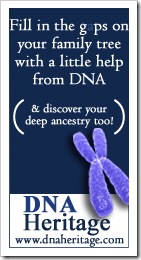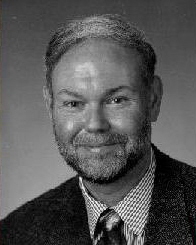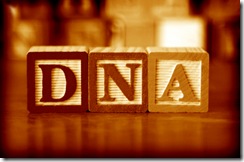Ann Turner has been a member of the genetic genealogy community since 2000, and during that time she has made great contributions to field (as will become obvious from her interview). According to her brief biography at the Journal of Genetic Genealogy:
Ann Turner is the founder of the GENEALOGY-DNA mailing list at RootsWeb and the co-author (with Megan Smolenyak) of “Trace Your Roots with DNA: Using Genetic Tests to Explore Your Family Tree.” She received her undergraduate degree in biology in 1964 and her M.D. from Stanford University in 1970. In recent years, she developed software for neuropsychological testing and wrote utility programs for the PAF genealogy program. One of these utilities provided a way to split out all people in a database who were related via their mitochondrial DNA, six years before mtDNA tests were commercially available. The inspiration for this feature came from the (then) forward-looking predictions of Dr. Thomas Roderick, now associate editor of JoGG.

 Terry Barton is co-founder of
Terry Barton is co-founder of  If you’ve ever even thought about testing your own DNA for genealogical purposes, then you are almost guaranteed to have heard of
If you’ve ever even thought about testing your own DNA for genealogical purposes, then you are almost guaranteed to have heard of  Genetic genealogy has been commercially available since 2000, and in the last 8 years many genealogists have used this new tool to learn about their ancestry. Over the course of the next two weeks, I will be sharing interviews I recently conducted with 9 individuals who have had a huge impact on the field of genetic genealogy. The list includes – in the random order that their interview will appear – Bennett Greenspan, Megan Smolenyak Smolenyak, Terry Barton, Alastair Greenshields, Whit Athey, Ann Turner, Katherine Hope Borges, Max Blankfeld, and Ana Oquendo Pabón.
Genetic genealogy has been commercially available since 2000, and in the last 8 years many genealogists have used this new tool to learn about their ancestry. Over the course of the next two weeks, I will be sharing interviews I recently conducted with 9 individuals who have had a huge impact on the field of genetic genealogy. The list includes – in the random order that their interview will appear – Bennett Greenspan, Megan Smolenyak Smolenyak, Terry Barton, Alastair Greenshields, Whit Athey, Ann Turner, Katherine Hope Borges, Max Blankfeld, and Ana Oquendo Pabón.
 The Genetic Genealogist has been
The Genetic Genealogist has been  Portfolio presents an interesting four-part series by
Portfolio presents an interesting four-part series by 